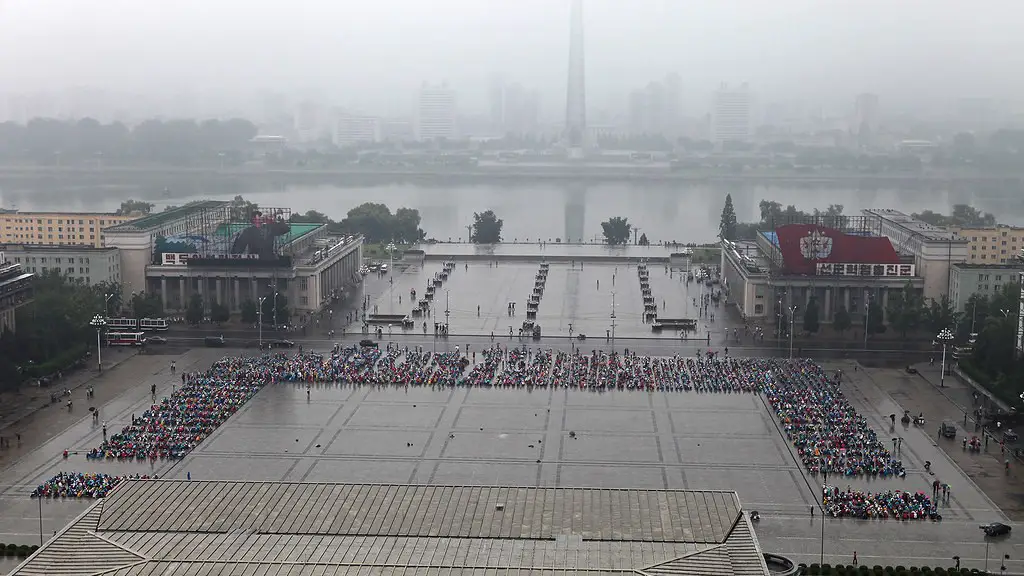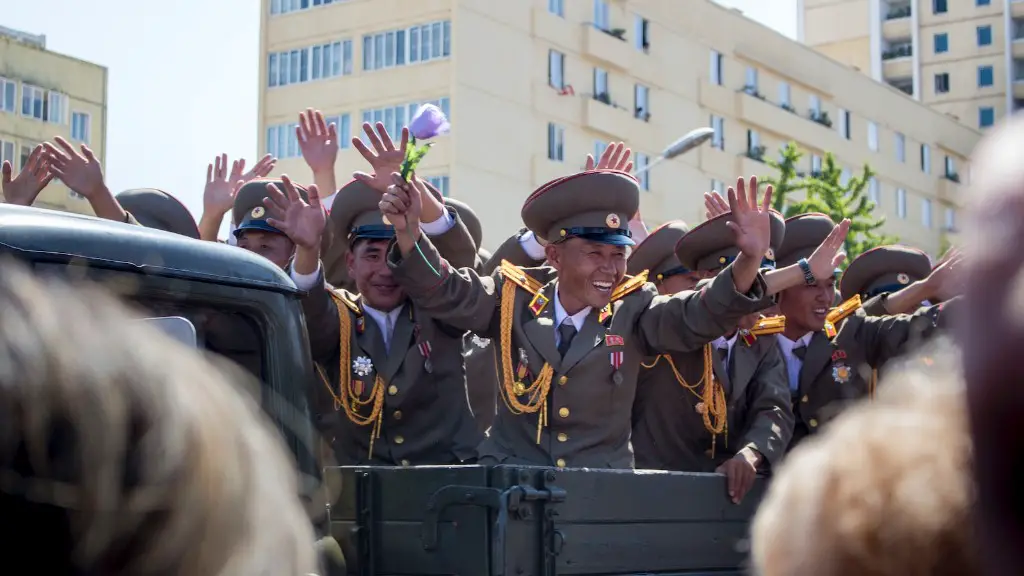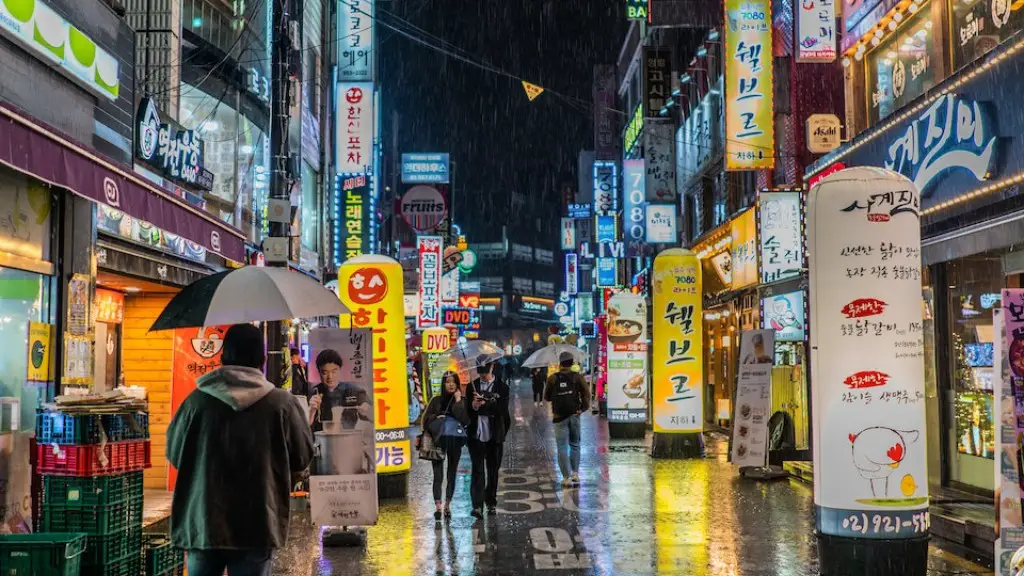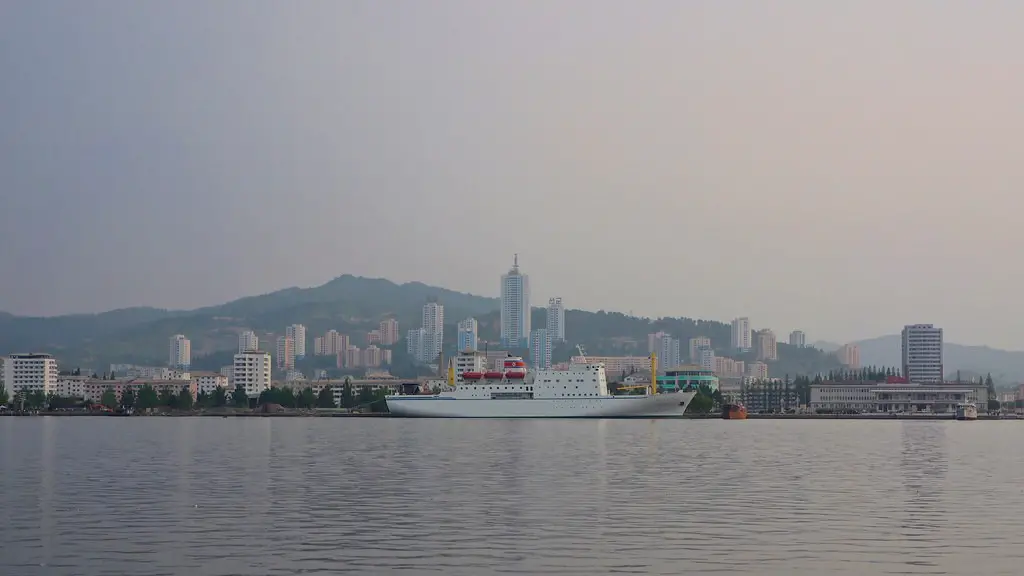With its notorious reputation for human rights abuses and an authoritarian style of government, North Korea remains one of the world’s most secretive and isolated nations. Videos of its repressive leader Kim Jong-un, and reports of its famine-ridden population, often dominate news headlines. So why is North Korea like this?
To understand North Korea, it’s important to consider its history. For decades, North Korea has existed as a closed-off totalitarian state with a deep-seated paranoia towards western nations, particularly the United States. This has been fuelled by the Korean War which left the North and South divided in 1953. Even today, North Korea and South Korea are still technically in a state of war.
North Korea’s reliance on its own nationalistic ideology of ‘juche’ has also been a significant contributing factor to its isolation. Juche is an extreme form of self-reliance and collectivism which has been a dominant feature of North Korean society since the 1960s. This ideology has allowed the government to promote a climate of paranoia and ensure that citizens remain fearful of outsiders.
The continuation of North Korea’s regime has also been secured by the dynastic rule of the Kim dynasty which began in 1945. This has allowed for a centralization of power, and for a controlled narrative of North Korean history to be propagated through state-run media. Reports of human rights abuses and rise in poverty, including starvation, have been constant as the nation has suffered from a lack of international aid due to embargoes.
What’s more, North Korea’s economy is one of the least developed in the world. With an estimated GDP per capita at around $2,000, countless North Koreans remain impoverished. Meanwhile, some experts believe the regime is funneling funds into its nuclear and missile programs, meaning the money that should be spent on those in need.
This situation makes it clear why North Korea is the way it is today – its history of conflict, oppressive ideology, and corrupt leaders mean that conditions for many North Koreans are dire. For the country to truly progress and its citizens to live in freedom and prosperity a lot needs to change.
Militarization
North Korea is a heavily militarized nation. It has the fourth largest standing military in the world, and a population that is known to venerate its leaders as key figures of stability. This ubiquitous military force serves to enforce the strict policies of the government, and to promote a culture of compliance with the Kim dynasty’s rules.
In recent years, North Korea’s military might has become increasingly apparent. The nation successfully launched its first satellite into space in 2012, and has continued to pursue a nuclear weapons program in defiance of the UN Security Council. These increasingly alarming steps towards militarization have raised concerns that North Korea could become a major global threat.
In response, the US and other western countries have put in place a series of sanctions on the regime in an attempt to limit the nation’s military capabilities. However, these economic measures have had a devastating impact on the lives of ordinary North Korean citizens, leaving many impoverished, unable to access vital medical care or food, and facing oppressive restrictions on their freedom of movement.
Overall, North Korea’s militarization has been detrimental to its citizens, and a major contributing factor to its status as a repressive nation. It is clear that this militarization must be addressed if the country is to move towards a more democratic and prosperous future.
Brainwashing
To ensure its survival, the North Korean government also practices extensive brainwashing of its citizens. The regime employs a vast propaganda machine which brainwashes citizens from a young age with messages of cult-like adoration of the Kim dynasty, and instills a deep-rooted distrust of outsiders.
Schools are designed to instill the regime’s teachings, and a network of informants keeps tight control over the population. Citizens also face harsh punishments for any perceived dissent. These measures ensure that the government is able to maintain control, and maintain its position as one of the last remaining totalitarian states.
The regime also heavily censors the media, blocking access to international sources and restricting what information is accessible to its citizens. This allows the regime to prevent the spread of information which could be negative to the Kim dynasty’s regime and prevent dissenting voices from gaining traction.
Brainwashing is one of the main reasons North Korea is the way it is today. Its citizens fear speaking out and have a false narrative of their nation’s history forced upon them. This enables the government to maintain control while ensuring its citizens remain ignorant of what lies beyond their nation’s borders.
Modern Impact
In recent years, the situation in North Korea has become increasingly tense. International sanctions, combined with the regime’s relentless pursuit of nuclear weapons, have heightened tensions on the Korean Peninsula, and made diplomatic negotiations more difficult.
The US government has repeatedly condemned North Korea’s repressive policies, and has issued a series of economic sanctions in an attempt to force the regime to negotiate. The Trump administration has also pursued a more aggressive approach, with the two leaders exchanging a series of inflammatory verbal threats.
Meanwhile, relations between North and South Korea have improved in recent months, with the two leaders meeting for a historic summit in 2018. This was seen as a significant breakthrough and gave some hope that the nations could work towards a more peaceful future.
Overall, North Korea remains a unique and isolated nation that continues to be a cause of major international concern. It is clear that the nation requires far-reaching political and economic reform in order to secure a more prosperous future.
International Aid
International aid could be a major factor in improving the situation in North Korea. The UN has been trying to secure access to the country since the 1990s in an effort to provide critical humanitarian assistance. However, it has experienced difficulty in doing this due to the oppressive nature of the regime.
Despite this, some aid has been successfully provided, leading to a reduction in famine in recent years. This suggests that international aid could be an effective way to make progress and improve the lives of ordinary North Koreans.
What’s more, there has been an increasing call from some humanitarian organizations for more international aid to be sent to North Korea to alleviate poverty and hunger. These organizations argue that providing aid is the best way to ensure North Korea can move away from its oppressive regime and towards a more open society.
Nonetheless, there is still a long way to go before North Korea can become a more prosperous nation. International aid could be an important part of the process, but it will require a major shift in policy from the North Korean regime in order for significant improvements to be made.
Peace Negotiations
In order for North Korea to move away from its oppressive government, a lasting peace must be negotiated between the North and South Koreas. This is seen as essential to bringing about a more open and prosperous future for the region.
In 2018, the two countries made a breakthrough in negotiations when they agreed to open diplomatic ties and work towards a more peaceful solution. This signaled a potentially significant shift in policy, and experts hoped it could lead to some form of reunification between the two nations.
So far, major progress has been made with the signing of a joint peace declaration. The two sides have also agreed to operate an inter-Korean liaison office and to take steps to reduce military tensions on the peninsula. All of this suggests that dialogue and diplomatic negotiations could be a route to progress.
Nonetheless, it remains to be seen if the peace efforts will continue and whether a lasting peace will be achieved. Until this does happen, North Korea will remain on a path that is detrimental to its citizens.





